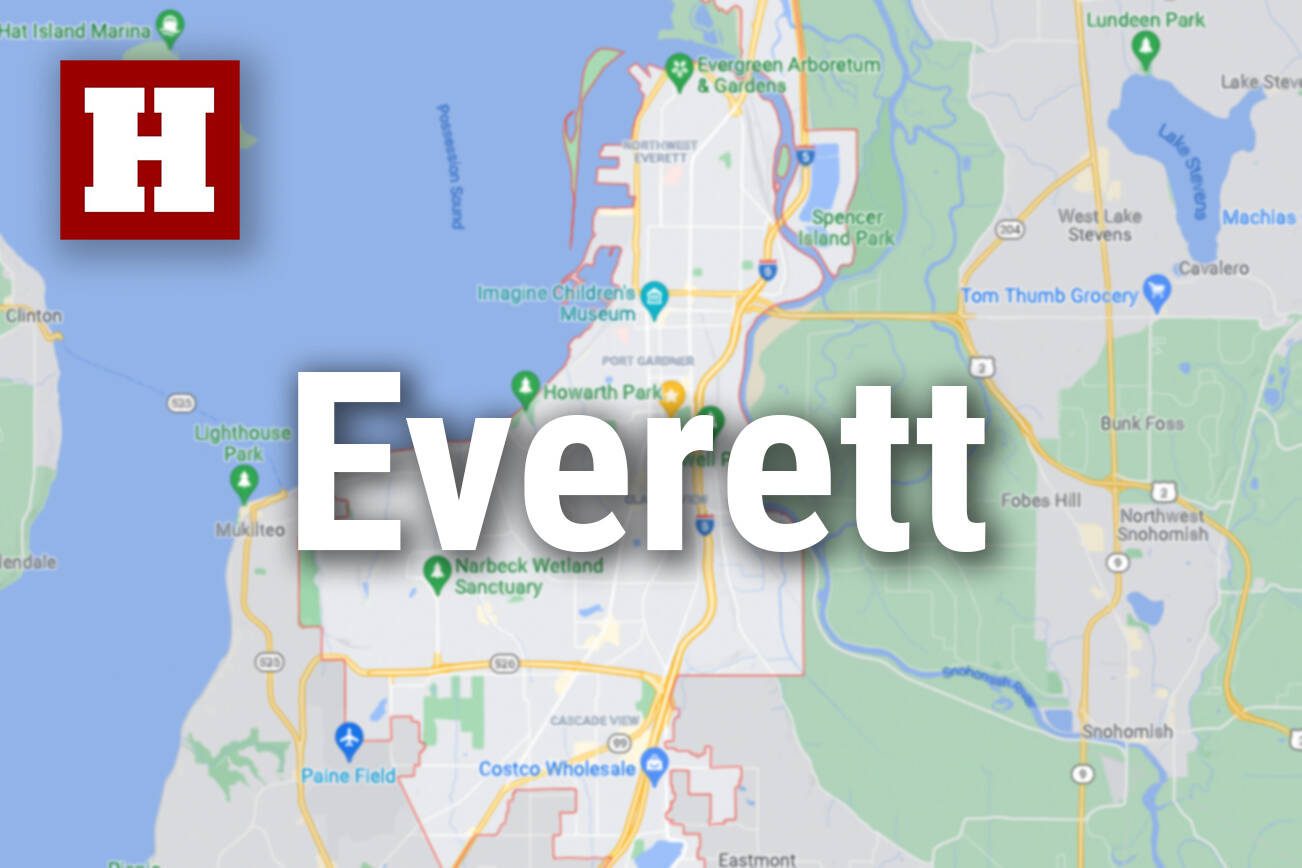EVERETT — The Everett City Council will decide in two weeks whether it will issue more than $200 million worth of bonds, which could be repaid through a variety of funding sources, to pay for city projects.
The bonds would help pay for city construction work as well as water and sewer projects, including the Port Gardner Storage Facility.
The water and sewer revenue bond would total $181 million, to be repaid via the city’s water and sewer utility fund. The City Council approved rate increases in January to help pay back the bonds and cover an increase in construction costs.
Two other smaller bonds, known as limited tax general obligation bonds, would go toward a variety of construction work. A $21 million bond would help pay for improvements to the Everett Municipal Building and the replacement of the Edgewater Bridge. That debt would be repaid via city capital improvement funds. The city is already using capital improvement dollars to repay bonds issued in 2012 and 2019, according to Everett’s 2025 budget.
Another $7 million bond would pay for renovating Eclipse Mill Park and improving the Riverfront Trail.
Eclipse Mill Park, yet to be completed, will be 3 acres in size, built at the intersection of Eclipse Mill Road and 36th Street along the Snohomish River. Money from the bond will go toward stabilization of the Snohomish River bank at the park and the addition of a floating dock, city spokesperson Simone Tarver wrote in an email.
Improvements to the Riverfront Trail — which will connect the Lowell Riverfront Trail to Eclipse Mill Park — include relocating a portion of the existing trail further inland. Part of the trail is currently being washed out by the Snohomish River, Tarver wrote.
Debt from that $7 million bond will be repaid via revenues from the Local Infrastructure Finance Tool, known as LIFT taxes.
The state enacted LIFT in 2006. Through the program, a city can issue a local tax, credited against state sales taxes — at a maximum of $500,000 per year, in Everett’s case — to be put toward designated areas which could attract development and economic activity. Those zones are known as revenue development areas — the Everett riverfront is one of them.
When utilizing LIFT, customers see no net increase in sales tax because of the credit from the state. Washington spends a maximum of $7.5 million on LIFT projects across the state annually.
Everett has been working to redevelop a former landfill and paper mill site along the Snohomish River for over 30 years. In 2007, the state approved Everett’s application, selecting the riverfront as a revenue development area. Everett approved the use of the LIFT tax in 2017 to go toward public improvements along the riverfront.
Since the city implemented the tax in 2017, it has helped fund a roundabout, public amenities, intersection improvements and design work at the riverfront development area, Tarver wrote. The city will receive proceeds from LIFT until 2042.
“The public improvements in the RDA are intended to create growth in sales and property tax revenues by encouraging private development activities,” Tarver wrote. “This growth in tax revenue is in turn used to pay principal and interest on the bonds issued to finance the improvements.”
State law requires cities to declare their intent to use LIFT taxes as a form of repayment for bonds, city finance director Heide Brillantes said at Wednesday’s meeting. The City Council could have voted to declare that intent on Wednesday, but decided to move the vote to March 19, when the council is set to vote on issuing the bonds.
At Wednesday’s meeting, council member Paula Rhyne raised the question of how the new limited tax general obligation bonds could affect the city’s ability to issue more bonds in the future. One of the methods the city could use to pay for a potential new multipurpose stadium to host the Everett AquaSox was issuing bonds based on revenue projections from the stadium. The committee estimated between $28 to $48 million could be raised from such bonds.
City finance staff, however, said Everett’s current outstanding debt is well under the legal limit. Under state law, Everett can incur general obligation debt up to 1.5% of its assessed valuation, or just over $400 million, according to the city’s 2025 budget. The city’s outstanding governmental debt as of Dec. 31, 2024 was about $18 million.
“That capacity is different than what you might choose to ever issue, in terms of policies and things like that, but you are well below any thresholds you would hit there,” said Alice Ostdiek, the city’s bond counsel, at Wednesday’s meeting.
Everett last issued limited tax general obligation bonds in 2019, which totaled just over $20 million.
The bonds represent “long-term financing for long-term infrastructure,” council member Ben Zarlingo said Wednesday.
“By spreading that cost over a number of years and realizing the benefit at the front, the people who are repaying it are the same people who are getting that benefit,” Ostdiek said. “You certainly have people who grow and move, you have different tax payers and a different tax base. They’re paying for their incremental load on the system, use of the improvement or enjoyment of that benefit.”
The council could vote on whether to approve the bonds on March 19.
Will Geschke: 425-339-3443; william.geschke@heraldnet.com; X: @willgeschke.
Talk to us
> Give us your news tips.
> Send us a letter to the editor.
> More Herald contact information.

























